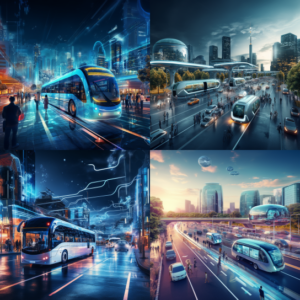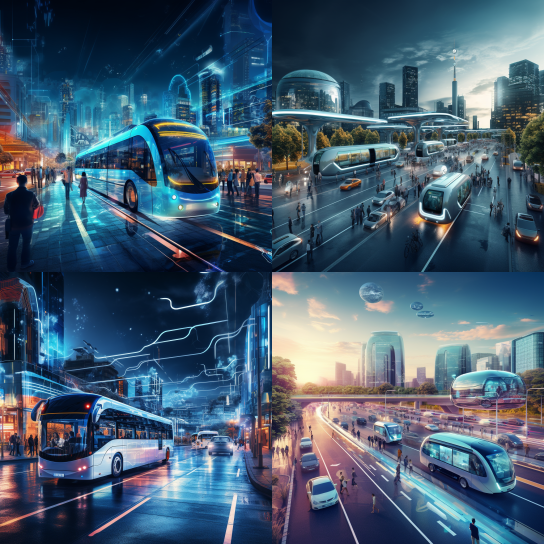Applications of AI in Transportation

Applications of AI in Transportation
AI In Transportation
Artificial Intelligence (AI) is revolutionizing transportation in numerous ways, making the sector safer, more efficient, and convenient. AI technologies have the potential to transform how people and goods move around the world, and its applications are widespread throughout the transportation industry.
Autonomous Vehicles
Autonomous vehicles are self-driving cars that use sensors, cameras, and machine learning algorithms to navigate roads safely. AI technology has significantly advanced autonomous vehicles, with companies such as Tesla, Waymo, and Uber testing and implementing the technology in their vehicles.
Traffic Management
AI algorithms can analyze data from cameras, sensors, and other sources to predict traffic flow and optimize routes. Traffic management systems can use this data to adjust traffic signals in real-time and redirect traffic to less congested roads.
Predictive Maintenance
AI-powered predictive maintenance can anticipate potential problems in vehicles, equipment, or infrastructure before they occur. By monitoring data such as temperature, vibration, and performance metrics, AI systems can alert maintenance personnel when components require repair or replacement.
Supply Chain Optimization
AI technology can optimize supply chain logistics by analyzing real-time data on inventory levels, delivery times, and transportation routes. This can help companies reduce transportation costs and improve delivery times.
Vehicle Safety
AI systems can monitor driver behavior, including speed, acceleration, and braking patterns, to detect potential safety hazards. This technology can help prevent accidents and reduce the number of fatalities on the road.
Personalized Travel
AI-powered travel planners can provide personalized recommendations for travel itineraries, accommodations, and activities based on individual preferences and travel history. This can enhance the travel experience for customers and increase customer loyalty.
Air Traffic Management
AI algorithms can optimize air traffic management by predicting flight schedules, routes, and potential delays. This can help reduce flight delays and cancellations, leading to a better customer experience.
Fleet Management
AI systems can monitor vehicle usage, fuel consumption, and maintenance needs to optimize fleet management. This technology can help companies reduce costs, improve safety, and increase efficiency.
Autonomous Trucks
Autonomous trucks are self-driving vehicles that use AI technology to transport goods across long distances. This technology can help reduce costs and improve safety in the trucking industry.
Route Optimization
AI algorithms can optimize transportation routes based on real-time data on traffic, weather, and other factors. This can help reduce travel times, improve fuel efficiency, and reduce transportation costs.
Public Transportation
AI technology can optimize public transportation systems by predicting demand, optimizing routes, and adjusting schedules in real-time. This can help reduce waiting times, increase efficiency, and improve the customer experience.
Parking Optimization
AI-powered parking systems can analyze real-time data on parking availability and usage to optimize parking spaces and reduce congestion. This technology can help reduce traffic and improve the parking experience for customers.
Smart Infrastructure
AI-powered infrastructure can monitor and analyze data on road conditions, traffic flow, and weather patterns to optimize road maintenance, reduce congestion, and improve safety.
AI technology has the potential to revolutionize the transportation industry in numerous ways, from enhancing safety and optimizing routes to improving the customer experience and reducing costs.


Leave a Reply